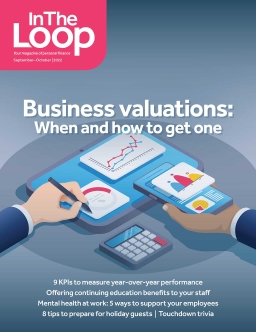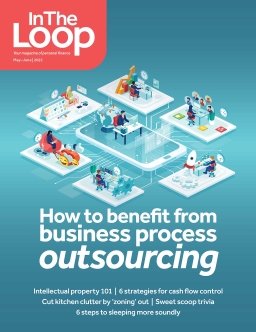Advisory services for the small business: A primer

No matter what industry you’re in, there’s one thing all businesses have in common: Owning a business isn’t easy.
Is it fun? Absolutely.
Exhausting? Totally.
Profitable? Hopefully.
Empowering? Definitely.
But easy? Rarely.
That’s why small business owners, who generally don’t have the assistance of a large team, can benefit from the support provided through advisory services. It’s a great compromise for the business owner who prefers to do what they do best—be an entrepreneur—instead of toiling over the day-to-day minutiae of running the business.
What are advisory services?
The American Institute of Certified Professional Accountants (AICPA) defines advisory services as “findings, conclusions and recommendations for client consideration and decision making.” While professionals from a number of fields can help small business owners in areas like marketing, operations, IT, legal, management and more, for the purposes of this article we’ll concentrate on the value-added advisory services an accounting firm can provide.
To break it down to its most basic, think of advisory services as providing the same functions as a CFO, at a fraction of the cost. In an accounting firm, your accounting professional (let’s call him or her your advisor) can help you look to the future by monitoring the short- and long-term financial health of your business and guiding you with strategic business planning and financial projections—things you’re too busy growing your company to spend enough time on.
How do advisory services work?
Your advisor meets with you regularly to discuss financials and offer insight into your data via reports on budgeting and tax planning/minimization. She or he will also help you track and analyze revenue and profit, expenses, payroll expenses, credit card fees, cash flow and any industry-specific key performance indicators (KPIs).
Because ongoing analysis is critical to the long-term success and sustainability of your business, these regular meetings help keep you from getting off-track from your business goals. Your advisor can focus on the bigger picture, which lets you focus on more urgent matters that need your attention.
What are other benefits of using my accountant’s advisory services?
One of the major perks of working with an accounting professional as your advisor is their tax expertise. The firm can work with you to file your tax returns, and your advisor can help you answer other questions, such as:
• What business structure (sole proprietor, LLC, S-Corp, etc.) works most advantageously for my business?
• Which tax deductions can I claim?
• How can I improve my budgeting and cash flow management?
• What’s the best way to handle my personal and business tax returns?
Another benefit is the knowledge an accounting professional brings to the table when there are tax law changes or special circumstances. Consider the fallout from the COVID-19 pandemic. Decisions on whether to close businesses or remain open, how to apply for and repay PPP/SBA loans, the financial consequences of employee furloughs, extended tax seasons, Restaurant Revitalization funds, etc.—it’s their job to get up to speed quickly on tax changes, which is why it’s smart to have them on your team.
Accounting professionals can also offer vital services like payroll and bookkeeping to a growing business, as well as advise you on the accounting software that works best for your situation. Plus, they’re well-versed in business situations that affect different phases of a business’s life—from improving internal controls to creating persuasive financial presentations for loan applications or potential investors, to mergers and acquisitions, succession planning, and exit strategies.
As your financial advisor, we’re cheering for your success. If you’d like to free up your time to concentrate on growing your small business, ask us how we can assist you with advisory services that can give you a fresh perspective—and keep your vision focused firmly on the future.
Back to issue








